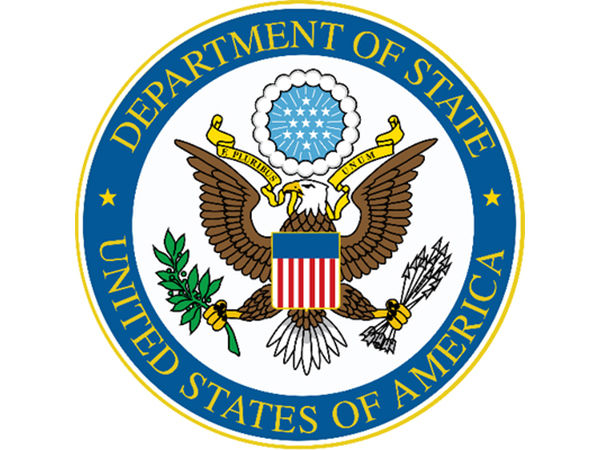 Washington, DC [US], April 2 (ANI): The United States on Tuesday (local time) sanctioned six entities and two individuals based in Iran, the UAE, and China that have been involved in the procurement of key components on behalf of entities connected to Iran's UAV and ballistic missile programs.The US State Department said in a statement that "today's action is a part of President Trump's maximum pressure campaign on the Iranian regime to disrupt efforts by the US-sanctioned Iran-based Qods Aviation Industries to procure equipment for Iran's military-industrial complex and UAV program.""The United States will use all available means to expose and disrupt Iran's growing UAV and missile development programs and weapons proliferation, which destabilize the Middle East and beyond," the statement added.Further, the State Department said that they will "continue to act" against the complex schemes Iran uses in third countries to conceal its acquisition and its transfers of sensitive technology.According to the US State Department, Iran uses this technology and the proceeds from arms sales to bolster its military industrial base to build missiles and UAVs, which are used against fellow countries, as well as exported to Russia, terrorist proxy groups around the Middle East, and to other actors of concernThe Department of Treasury's action was taken pursuant to Executive Order 13382, which targets proliferators of weapons of mass destruction and their supporters.On Monday, the US imposed visa restrictions on Chinese officials responsible for limiting the access of US officials to Tibetan areas.This move is in response to the Chinese Communist Party's (CCP) long-standing refusal to allow US diplomats, journalists, and international observers into Tibet while Chinese officials enjoy unrestricted access to the United States."Today, I am taking steps to impose additional visa restrictions on Chinese officials determined to be substantially involved in the formulation or execution of policies related to access for foreigners to Tibetan Areas, pursuant to the Reciprocal Access to Tibet Act of 2018," US Secretary of State Marco Rubio said in a statement."'For far too long, the Chinese Communist Party (CCP) has refused to afford US diplomats, journalists, and other international observers access to the Tibet Autonomous Region (TAR) and other Tibetan areas of China, while China's diplomats and journalists enjoy broad access in the United States. US diplomats are also unable to provide services to US citizens traveling in Tibet," he added. (ANI)
Washington, DC [US], April 2 (ANI): The United States on Tuesday (local time) sanctioned six entities and two individuals based in Iran, the UAE, and China that have been involved in the procurement of key components on behalf of entities connected to Iran's UAV and ballistic missile programs.The US State Department said in a statement that "today's action is a part of President Trump's maximum pressure campaign on the Iranian regime to disrupt efforts by the US-sanctioned Iran-based Qods Aviation Industries to procure equipment for Iran's military-industrial complex and UAV program.""The United States will use all available means to expose and disrupt Iran's growing UAV and missile development programs and weapons proliferation, which destabilize the Middle East and beyond," the statement added.Further, the State Department said that they will "continue to act" against the complex schemes Iran uses in third countries to conceal its acquisition and its transfers of sensitive technology.According to the US State Department, Iran uses this technology and the proceeds from arms sales to bolster its military industrial base to build missiles and UAVs, which are used against fellow countries, as well as exported to Russia, terrorist proxy groups around the Middle East, and to other actors of concernThe Department of Treasury's action was taken pursuant to Executive Order 13382, which targets proliferators of weapons of mass destruction and their supporters.On Monday, the US imposed visa restrictions on Chinese officials responsible for limiting the access of US officials to Tibetan areas.This move is in response to the Chinese Communist Party's (CCP) long-standing refusal to allow US diplomats, journalists, and international observers into Tibet while Chinese officials enjoy unrestricted access to the United States."Today, I am taking steps to impose additional visa restrictions on Chinese officials determined to be substantially involved in the formulation or execution of policies related to access for foreigners to Tibetan Areas, pursuant to the Reciprocal Access to Tibet Act of 2018," US Secretary of State Marco Rubio said in a statement."'For far too long, the Chinese Communist Party (CCP) has refused to afford US diplomats, journalists, and other international observers access to the Tibet Autonomous Region (TAR) and other Tibetan areas of China, while China's diplomats and journalists enjoy broad access in the United States. US diplomats are also unable to provide services to US citizens traveling in Tibet," he added. (ANI)